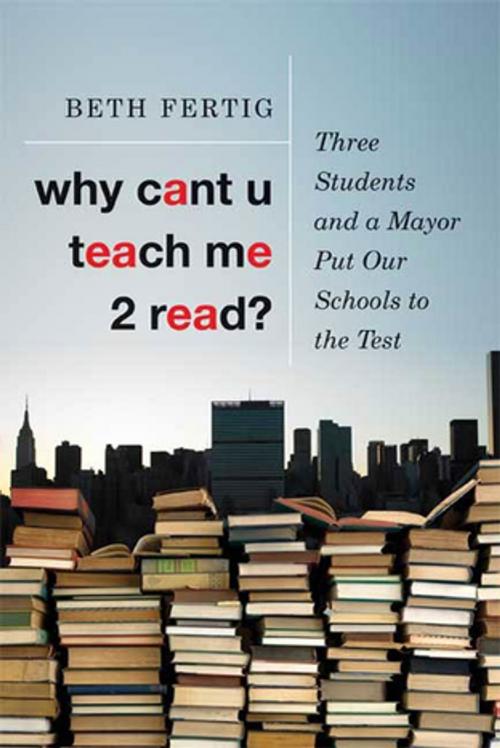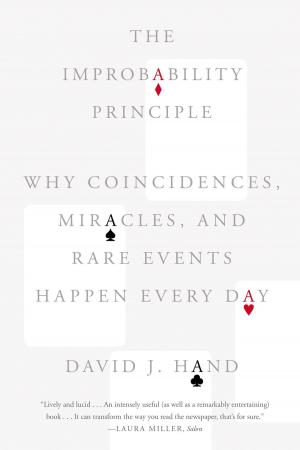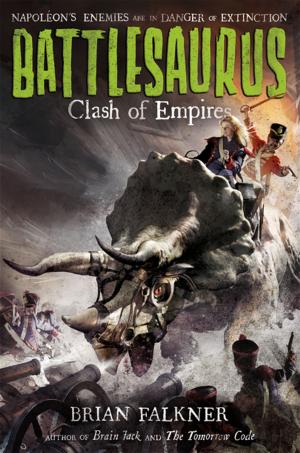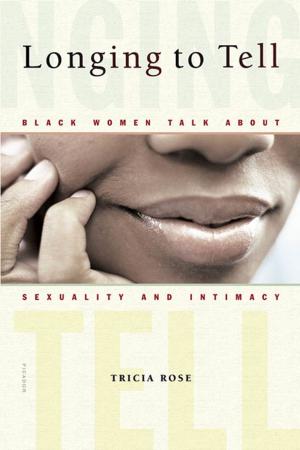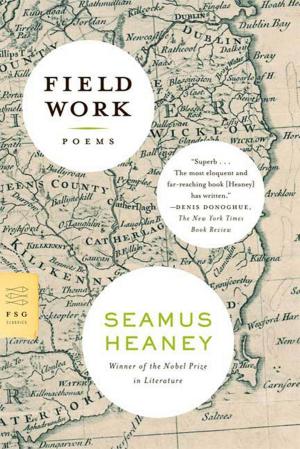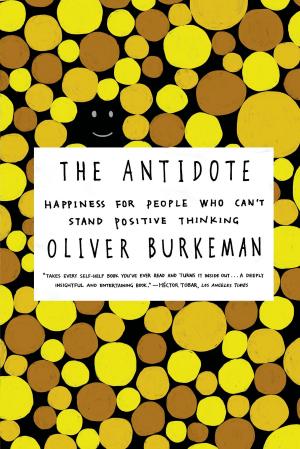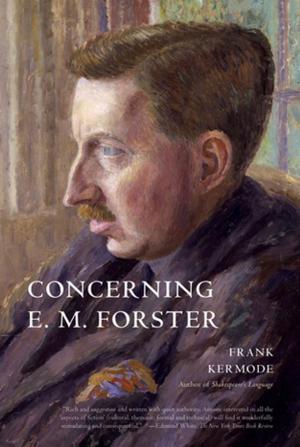Why cant U teach me 2 read?
Three Students and a Mayor Put Our Schools to the Test
Nonfiction, Reference & Language, Education & Teaching, Educational Theory, Educational Reform| Author: | Beth Fertig | ISBN: | 9781429942430 |
| Publisher: | Farrar, Straus and Giroux | Publication: | September 15, 2009 |
| Imprint: | Farrar, Straus and Giroux | Language: | English |
| Author: | Beth Fertig |
| ISBN: | 9781429942430 |
| Publisher: | Farrar, Straus and Giroux |
| Publication: | September 15, 2009 |
| Imprint: | Farrar, Straus and Giroux |
| Language: | English |
Why cant U teach me 2 read? is a vivid, stirring, passionately told story of three students who fought for the right to learn to read, and won—only to discover that their efforts to learn to read had hardly begun.
A person who cannot read cannot confidently ride a city bus, shop, take medicine, or hold a job—much less receive e-mail, follow headlines, send text messages, or write a letter to a relative. And yet the best minds of American education cannot agree on the right way for reading to be taught. In fact, they can hardly settle on a common vocabulary to use in talking about reading. As a result, for a quarter of a century American schools have been riven by what educators call the reading wars, and our young people have been caught in the crossfire.
Why cant U teach me 2 read? focuses on three such students. Yamilka, Alejandro, and Antonio all have learning disabilities and all legally challenged the New York City schools for failing to teach them to read by the time they got to high school. When the school system's own hearing officers ruled in the students' favor, the city was compelled to pay for the three students, now young adults, to receive intensive private tutoring.
Fertig tells the inspiring, heartbreaking stories of these three young people as they struggle to learn to read before it is too late. At the same time, she tells a story of great change in schools nationwide—where the crush of standardized tests and the presence of technocrats like New York's mayor, Michael Bloomberg, and his schools chancellor, Joel Klein, have energized teachers and parents to question the meaning of education as never before. And she dramatizes the process of learning to read, showing how the act of reading is nothing short of miraculous.
Along the way, Fertig makes clear that the simple question facing students and teachers alike—How should young people learn to read?—opens onto the broader questions of what schools are really for and why so many of America's schools are faltering.
Why cant U teach me 2 read? is a poignant, vital book for the reader in all of us.
Why cant U teach me 2 read? is a vivid, stirring, passionately told story of three students who fought for the right to learn to read, and won—only to discover that their efforts to learn to read had hardly begun.
A person who cannot read cannot confidently ride a city bus, shop, take medicine, or hold a job—much less receive e-mail, follow headlines, send text messages, or write a letter to a relative. And yet the best minds of American education cannot agree on the right way for reading to be taught. In fact, they can hardly settle on a common vocabulary to use in talking about reading. As a result, for a quarter of a century American schools have been riven by what educators call the reading wars, and our young people have been caught in the crossfire.
Why cant U teach me 2 read? focuses on three such students. Yamilka, Alejandro, and Antonio all have learning disabilities and all legally challenged the New York City schools for failing to teach them to read by the time they got to high school. When the school system's own hearing officers ruled in the students' favor, the city was compelled to pay for the three students, now young adults, to receive intensive private tutoring.
Fertig tells the inspiring, heartbreaking stories of these three young people as they struggle to learn to read before it is too late. At the same time, she tells a story of great change in schools nationwide—where the crush of standardized tests and the presence of technocrats like New York's mayor, Michael Bloomberg, and his schools chancellor, Joel Klein, have energized teachers and parents to question the meaning of education as never before. And she dramatizes the process of learning to read, showing how the act of reading is nothing short of miraculous.
Along the way, Fertig makes clear that the simple question facing students and teachers alike—How should young people learn to read?—opens onto the broader questions of what schools are really for and why so many of America's schools are faltering.
Why cant U teach me 2 read? is a poignant, vital book for the reader in all of us.
